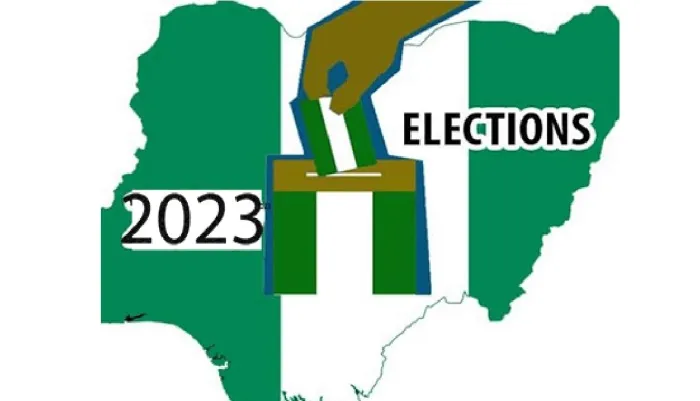Given the significance and enormity of the current elections for the future of the Nigerian state, my most recent contributions have been dedicated to unraveling what can be broadly called the leadership challenge Nigeria needs to confront and overcome, post-2023. The reason for this is obvious: we can no longer afford to play the bad political game that tampers with the future of Nigerians.
This public education and advocacy piece therefore focuses on critical nuggets of development policies, ideas and think pieces that might be useful, as advisories, in aiding the reflections of those who will be eventually be entrusted with the affairs of this country, their advisers, public managers and development workers.
The first issue, and critical place to start, has to do with a fundamental and overarching question that cast a deep shadow over the country’s future, which is ingrained in the question: Is Nigeria a failing or a failed state? This is not an easy question to resolve, as political scientists and development experts now realise. However, whatever answer one assumes has enormous implications for the possible status of the Nigerian state as an enabling developmental and capable state that can fast track development. Three are cogent. The first issue that bedevils Nigeria’s development trajectory is the virulence of a rentier culture that underlies the elite bargain that keeps running this country aground.
The second is the ubiquitous “Nigerian factor” that subordinate the critical good politics to the greedy whims of the political class who would deploy ethnicity and religion to sabotage development bargains. The Nigerian Factor is about corruption, and the promotion of mediocrity fueled by neopatrimonialism and nepotism. The last issue concerns Nigeria’s dependent status within the unequal framework provided by the structure of the global political economy.
The second issue that raises critical alarm in the development trajectory is Nigeria’s protracted inability to harness her comparative economic advantage into a productive capacity. This has unfortunately and dangerously initiated a process of de-industrialization—or what Alfred Marshall calls “negative production”—in which the country consumes what it does not produce even when it has the capacity to do so. This negative production generates a weak production capacity that ensures that Nigeria is stuck on oil revenue while other non-oil sectors remain technically moribund and hence unable to instigate composite industrialisation and development.
Jumpstarting the economy to achieve a sound developmental impetus requires more than paying lip-service to local content. No significant progress will be made if issues driving current alarming cost and ease of doing business are not confronted head-on and creatively. There are of course other structural bottlenecks that strangulate local enterprises and initiatives that do not bear repeating here.
The third issue that complicates development planning and economic progress in Nigeria is the public service institutional dysfunction that underwrite Nigeria’s low capacity to generate and push the nation’s development agenda to a logical and transformative conclusion. The dysfunction in the professional gatekeeping and human resource function sees to it that the public service is burdened by political patronage.
We must also not discountenance the crippling of the workplace performance and productivity framework by the unfortunate reality of an adversarial and militancy-propelled industrial relations and labor unionism that foreclose strategic thinking and technical rational options in collective bargaining and institutional reprofiling in the service of policy making cum service delivery to achieve world-class national development performance.
The fourth issue, and closely related to the last, has to do with the fundamental imperative of navigating the Nigerian policy space with strategic intelligence and competencies that are truly enabling for a developmental state and its noble objectives. And this is the dilemma: the policy space has become too significant to be left all alone to the whims and caprices of the bureaucrats; and yet that space is too unique and complex to be violated by non-bureaucrats without enough competencies and expertise. Public servants would naturally want to aggressively guard the governance space in a fit of institutional closemindedness that exclude technocrats who could add to the high-ended professional efficiency.
Nigeria’s capacity for global competitiveness is therefore jeopardised because her policy space is (a) bereft of the technical support that comes from policy experts, tested professionals, consulting firms and international development partners, and (b) the low level of MDAs’ organisational and strategic intelligence IQ to translate plans, policies and programmes to outcomes and transitions due to inordinately inchoate and low national learning infrastructure, inadequate skills and competencies transfer institutionalised into strategic policy intelligence dynamic.
The economic and development renaissance in Nigeria, post-2023, depends on Nigeria arresting its national drift towards state and governance failure in ways that appropriate a policy space that is facilitated by a developmental leadership with the proactive capacity to generate transformative progress by switching from problem-thinking to solution-thinking. What I have provided in this piece are landmines that could prevent the emergence of a robust policy space that is a sine qua non for achieving development objectives.
Nigeria’s post 2023 policy landscape must be one where the incoming administration must be willing to deliberately and consciously overlook or undermine any other non-developmental variables that could distract from that fundamental objectives of a competitive economy and national productivity.
Prof. Olaopa is retired Federal Permanent Secretary and can be reached via [email protected]

 Join Daily Trust WhatsApp Community For Quick Access To News and Happenings Around You.
Join Daily Trust WhatsApp Community For Quick Access To News and Happenings Around You.